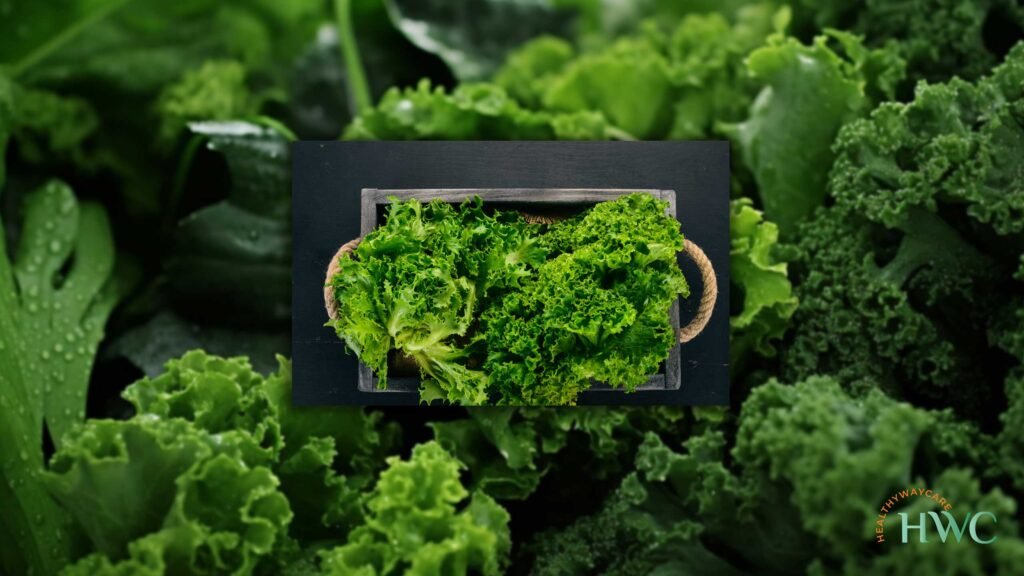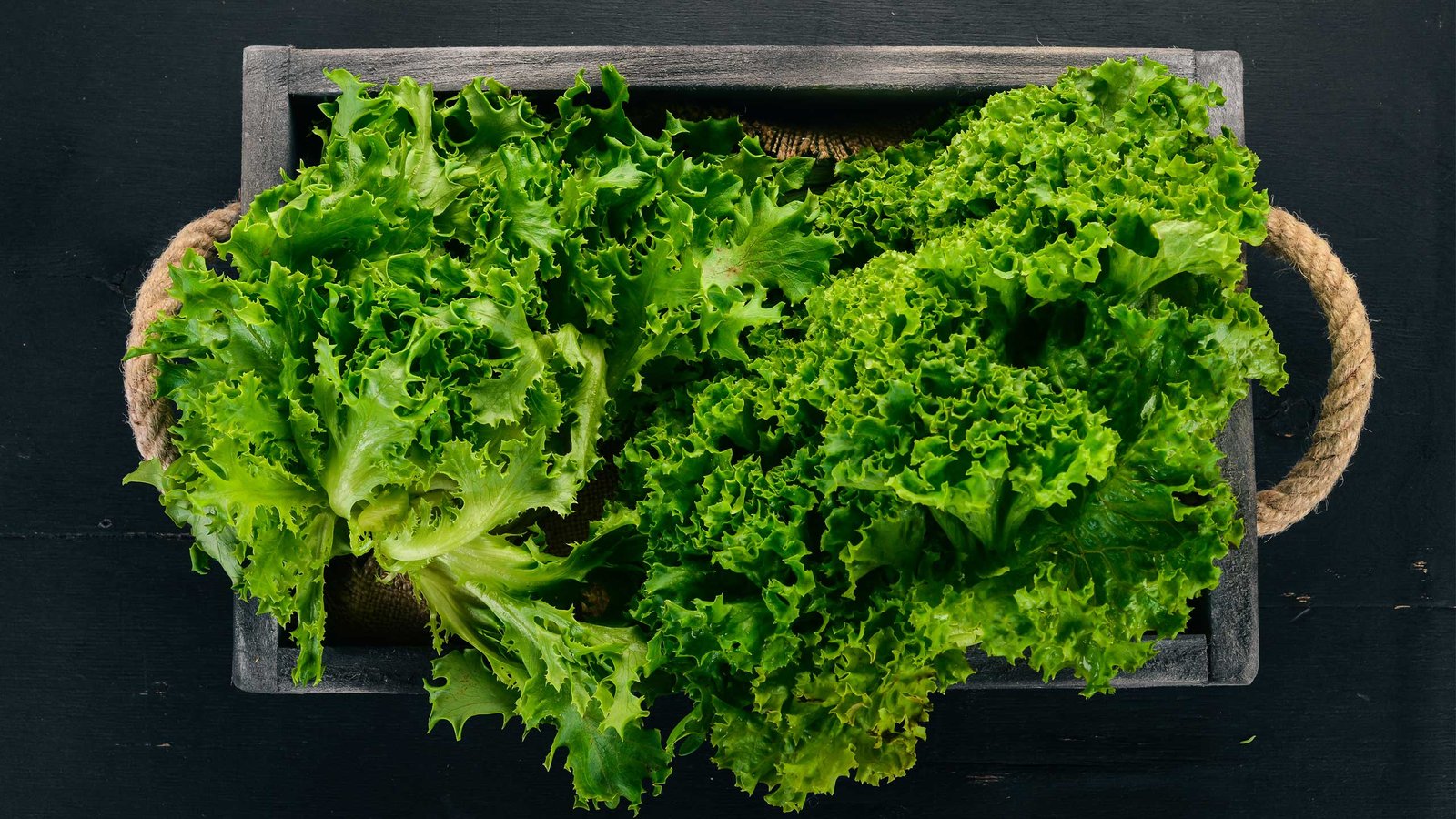Kale, a leafy green vegetable renowned for its exceptional taste, is gaining popularity due to its remarkable health benefits. As a member of the cruciferous vegetable family, which encompasses cabbage, broccoli, and Brussels sprouts, kale offers a wealth of nutritional value. Discover the multitude of health benefits of kale and its culinary versatility today.
Table of Contents
Exploring the Health Benefits of Kale: Nutritional Profile
Kale is a nutrient-rich vegetable, containing high levels of important vitamins like A, C, and K. A single cup of raw kale provides more than 100% of the daily recommended intake of vitamin A and vitamin K, and over 70% of the daily recommended intake of vitamin C.
Minerals: Unveiling the Health Benefits of Kale
Besides its vitamin content, kale is abundant in essential minerals crucial for maintaining good health. It provides a significant amount of calcium, magnesium, potassium, and manganese.. These minerals play crucial roles in bone health, muscle function, and maintaining electrolyte balance.
Fiber: Revealing the Health Benefits of Kale
Kale is rich in dietary fiber, which is beneficial for digestive health. Fiber helps with digestion by increasing stool volume, preventing constipation, and supporting a healthy balance of gut bacteria.
Health Benefits of Kale

Health Benefits and Nutritional Value of Cauliflower
Rich Source of Antioxidants
Kale is renowned for its high antioxidant content, which helps protect cells from damage caused by free radicals. Antioxidants like beta-carotene, flavonoids, and polyphenols found in kale may lower the risk of chronic diseases such as cancer and cardiovascular disorders.
Supports Heart Health
Kale’s nutrients, such as potassium and fiber, support heart health by assisting in the regulation of blood pressure and cholesterol levels. Potassium helps relax blood vessels, reducing the risk of hypertension, while fiber aids in lowering LDL (bad) cholesterol levels.
Aids in Digestion
Thanks to its high fiber content, kale promotes healthy digestion and prevents constipation. Fiber adds bulk to stool, facilitating smooth bowel movements and promoting regularity. Additionally, kale contains enzymes that support proper digestion and nutrient absorption.
Promotes Bone Health
Kale is a rich source of vitamin K, crucial for maintaining strong bones and aiding in calcium absorption. Sufficient vitamin K intake can lower the risk of osteoporosis and fractures by promoting bone mineralization and density.
Anti-inflammatory Properties
Consuming kale regularly may help reduce inflammation in the body due to its abundance of antioxidants and anti-inflammatory compounds. Chronic inflammation is associated with several illnesses, such as arthritis, cardiovascular disease, and certain types of cancer. Including kale in your diet may help combat inflammation and promote overall wellness.
Supports Eye Health
Kale is rich in lutein and zeaxanthin, two antioxidants that play a crucial role in maintaining eye health. These compounds aid in safeguarding the eyes against age-related macular degeneration and cataracts by filtering out harmful blue light and diminishing oxidative stress in the retina.
Weight Management
Incorporating kale into your diet can aid in weight management and promote satiety due to its low calorie and high fiber content. Fiber-rich foods like kale help you feel full for longer periods, reducing overall calorie intake and supporting weight loss efforts.
Boosts Immunity
The abundance of vitamins and antioxidants in kale strengthens the immune system, helping the body fight off infections and illnesses. Vitamin C, in particular, enhances immune function by stimulating the production of white blood cells and antibodies.
Incorporating Kale into Your Diet
Broccoli Benefits: Why This Veggie Should Be on Your Plate
There are countless delicious ways to enjoy the health benefits of kale:
Raw Kale Salads: Toss fresh kale leaves with your favorite dressing, nuts, seeds, and other vegetables for a nutrient-packed salad.
Kale Smoothies: Blend kale with fruits, yogurt, and a liquid base like water or almond milk for a refreshing and nutritious smoothie.
Sautéed Kale: Sauté kale with garlic and olive oil for a flavorful side dish or add it to pasta, stir-fries, or omelets.
Kale Chips: Bake kale leaves seasoned with salt and spices until crispy for a healthy alternative to potato chips.
Kale Soups: Add chopped kale to soups, stews, and chili for an extra boost of vitamins and fiber.
Conclusion
In summary, the health benefits of kale are extensive, making it a highly nutritious vegetable worth incorporating into your diet. From enhancing heart health and aiding digestion to boosting immunity and promoting bone health, kale is truly a superfood with a wide array of advantages. Whether enjoyed raw in salads, blended into smoothies, or cooked in various dishes, kale can enhance both the flavor and nutritional value of your meals.
Can kale help with weight loss?
Yes, kale can aid in weight loss due to its low calorie and high fiber content. Including kale in your diet can help you feel full for longer periods, reducing overall calorie intake and supporting weight loss efforts.
How should kale be stored to maintain freshness?
To keep kale fresh, store it unwashed in a plastic bag in the refrigerator. It’s best to consume kale within a few days of purchase for optimal freshness and nutritional value.
Are there any potential side effects of consuming kale?
While kale is generally safe for consumption, some individuals may experience digestive discomfort or bloating if they consume large quantities of raw kale. Cooking kale can help mitigate these effects.
Can kale be frozen for later use?
Yes, kale can be frozen for later use. Wash and dry the kale thoroughly, then chop or tear it into pieces before freezing in an airtight container or freezer bag. Frozen kale can be added directly to smoothies, soups, or cooked dishes.


1 thought on “The Incredible Health Benefits of Kale”